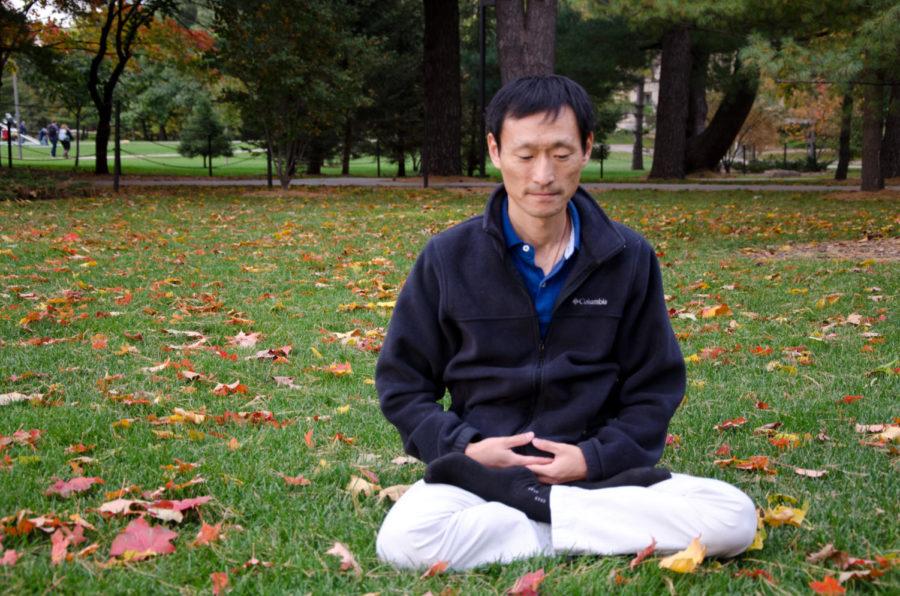Goss: Meditation benefits the mind and body
Columnist Grayson Goss recommends college students take advantage of meditation, arguing that the practice helps with stress, sleep and creativity.
October 27, 2019
Meditation is an ancient practice that originated in India around 3,500 B.C. The practice itself largely consists of sitting still and focusing on one’s breathing, with the goal of calming the mind of all the thoughts roaming around. It is a deceptively simple task. Some Hindu and Buddhist monks spend their entire lives perfecting their meditative state to reach a state of nirvana.
Despite this activity having an intensely spiritual background, there is a large body of scientific evidence that suggests daily or even weekly meditation is beneficial. Here are some of the benefits college students can take advantage of with mediation.
Stress reduction — With exams, homework and social activities, it is no wonder college is a stressful time for many. When we feel stressed, that is due to an activated stress chemical in our body called cortisol. Cortisol was useful for our ancestors, aiding in a fight-or-flight response in the face of life threatening events like being hunted by animals. Now that fight-or-flight response activates for homework or tests.
Unsurprisingly, increased cortisol levels over a long period of time (like the four years one is in college) can be damaging to many areas of the body, like the heart and even one’s memory. Meditation has been shown to reduce feelings of stress and also physical stress and stress reactions, which is beneficial in combating the daily stress of college.
Better sleep — Sleep has been shown to be an important key in memory and the learning process. Lack of sleep, whether from parties or study sessions, can impact one’s learning tremendously. It doesn’t help knowing that roughly 30% of the general population suffers from insomnia.
Thankfully, scientific studies have exhibited that meditative practices can help people fall asleep faster and have deeper sleep. Meditative mindfulness also helps in regulating one’s thoughts to prevent insomniac “runaway thoughts.”
Default mode deactivation — The default mode network (DMN) is a collection of neural circuitry that has been linked to what some call an “inner critic.” This inner critic can be detrimental to students who need to work on a focused task, as the DMN can cause one’s mind to wander and ruminate on various other thoughts.
Mindfulness exercises with meditation have shown to reduce activity in the DMN and cause people to enter a “flow” state of increased creativity and increased effort, both of which are useful for college students with meaningful work to do.
The best part about meditation in this digital age is that you can meditate anywhere. Even if you are on your daily commute or have five minutes away from work, you can use mobile apps like Headspace and Calm (both of which are freely available for download) to help you start meditating today!
Using these practices of meditation and mindfulness will aid in a less stressed and more focused life for everyone.







